TL;DR
- Coinbase acquires Deribit, becoming the top global crypto derivatives platform.
- Stripe launches stablecoin accounts in over 100 countries to serve inflation-hit regions.
- Finery Markets reports $6.9B YtD volume and four consecutive ATHs.
- Bitcoin tops $103K as institutions pour in $3B via ETFs; corporates ramp up treasury allocations.
- Solana targets 1M TPS with Firedancer, positioning for institutional-grade performance.
- Deutsche Börse’s 360T launches 3DX, a MiCA-compliant crypto exchange for EU institutions.
- U.S. lawmakers propose sweeping draft crypto bill, removing income thresholds and defining stablecoins.
- OCC clears U.S. banks to buy, sell, and custody crypto directly or via partners.
- ETH back in regulatory spotlight as NY AG pushes SEC to define it as a security.
M&A
Coinbase to Acquire Deribit in Major Derivatives Push
Coinbase has announced its acquisition of Deribit, the world’s largest crypto options exchange, in a move set to transform its global derivatives business. Deribit, which handled over $1T in 2024 volume, brings expertise and scale to Coinbase’s expanding product suite.
The deal creates a unified platform for spot, futures, perpetuals, and options—catering to institutional traders seeking capital efficiency and diverse risk management tools. Coinbase will now lead in global derivatives by open interest and volume.
This acquisition also improves Coinbase’s revenue resilience by incorporating more stable, cycle-resistant income streams from derivatives, helping offset volatility in spot markets.
Stablecoins
Stripe Launches Stablecoin Accounts in 100+ Countries
Stripe has launched stablecoin-based financial accounts in over 100 countries, including Argentina, Turkey, Colombia, and Peru. The accounts allow users to send, receive, and hold USDC and USDB, functioning like fiat accounts but built for crypto.
The initiative builds on Stripe’s 2024 acquisition of Bridge and leverages growing global demand for digital dollars amid economic instability. With the stablecoin market cap now exceeding $231B, Stripe is positioning itself as a key player in democratizing access to dollar-pegged financial tools.
The new service targets regions suffering from inflation and capital restrictions, offering businesses an efficient and borderless alternative to traditional banking infrastructure.
Finery Markets Hits $6.9B YtD in Turnover, Sets New ATH
Finery Markets achieved $6.9B in trading volume in April 2025, marking a 92% YoY increase and its fourth consecutive monthly all-time high. The platform now serves over 140 active institutional clients.
Its non-custodial infrastructure continues to gain traction amid rising demand for reliable trading venues in stablecoins and digital assets. Strong operating income reinforces the platform’s sustainable growth trajectory.
Markets
Bitcoin Back Above $100K as Institutions Double Down
Bitcoin has rallied to $103,216—up 33% in recent weeks—recovering from an April low of $75,000 triggered by U.S. tariff news. Institutional capital has fueled the rebound, with BTC ETFs attracting $3B in inflows late last month.
Major corporate buyers are also back: Strategy added 1,895 BTC at a $95,167 average price, raising its total holdings to 555,450 BTC. Semler Scientific acquired 167 BTC, becoming the fourth-largest U.S. corporate holder.
With exchange balances shrinking and whales accumulating, Bitcoin appears well-supported at current levels as institutions signal long-term conviction.
Solana Eyes Institutional Edge with Firedancer Upgrade
Solana is preparing to scale its throughput to 1 million transactions per second through the Firedancer upgrade, developed by Jump Trading. The architecture adds speed, security, and validator diversity to the network.
The upgrade drastically outpaces existing blockchains, including Bitcoin’s 7 TPS and Visa’s ~65,000, making Solana attractive for high-frequency financial services. With 400ms finality, it aims to deliver institutional-grade performance.
Solana’s pitch is clear: become the backbone of global finance infrastructure, offering low-latency, composable, and high-capacity rails for decentralized and traditional finance alike.
Deutsche Börse’s 360T Launches 3DX for Institutional Crypto Trading
360T, the FX arm of Deutsche Börse, has launched a MiCA-regulated digital asset exchange—3DX—targeted at institutional investors. The new venue offers spot trading, crypto NDFs, and customizable liquidity streams through 360T’s SuperSonic suite.
Led by Carlo Kölzer, 3DX will support both GUI and API access with a strong focus on risk management and bilateral settlement, addressing growing demand for regulated digital trading venues in the EU.
This development underlines Deutsche Börse’s commitment to the crypto economy and its ambition to lead institutional market structure transformation.
Regulation
U.S. Draft Crypto Bill Aims to Usher In ‘Golden Age’
The U.S. House Financial Services Committee released a new draft bill on May 5 proposing a comprehensive market structure for digital assets. It introduces decentralization tests, removes investor income thresholds, and offers joint SEC-CFTC oversight.
The legislation has drawn praise from leaders like VanEck’s Matthew Sigel and Paradigm’s Justin Slaughter, who see it as a meaningful update over previous proposals like FIT21.
If enacted, the bill could position the U.S. as a global leader in crypto regulation, unlocking investment access while reinforcing consumer protections.
OCC Greenlights Banks to Trade and Custody Crypto
The U.S. Office of the Comptroller of the Currency (OCC) has confirmed that national banks can now buy, sell, and custody crypto assets for clients. They can also partner with third parties for custody and execution services, provided strong risk controls are maintained.
This policy update, issued in March and reaffirmed last week, reverses a 2021 requirement for pre-approval of crypto activities. It marks a key regulatory shift toward broader banking sector participation in crypto markets.
Banks are now positioned to offer comprehensive digital asset services, including settlement, exchange, and tax-related reporting—potentially accelerating crypto integration into traditional financial institutions.
ETH in Regulatory Crosshairs: NY AG Urged SEC to Classify ETH as Security
Coinbase has revealed internal communications showing the New York Attorney General urged the SEC to label Ethereum a security during its 2023 legal case against KuCoin. The request was made to bolster the state’s argument in court, though the SEC ultimately remained silent on the matter.
The revelation is part of Coinbase’s broader transparency campaign, relying on FOIA disclosures to highlight regulatory inconsistencies. The NY AG’s office, led by Shamiso Maswoswe, suggested the move would aid investor protection and legal clarity.
This disclosure adds to the ongoing uncertainty around ETH’s classification following its shift to proof-of-stake and reflects broader industry calls for clear, unified crypto regulation in the U.S.
























